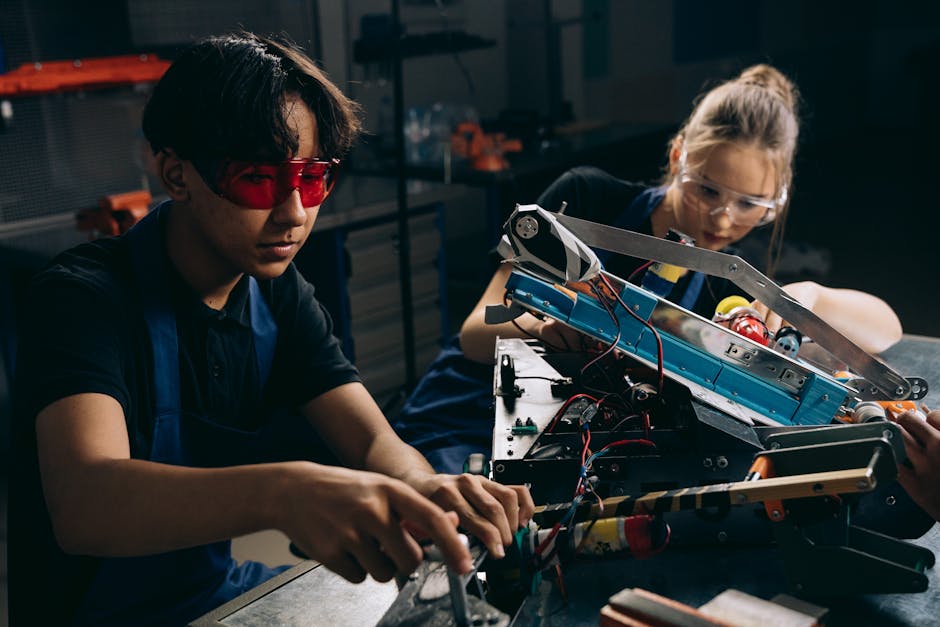Understanding the Landscape: Displacement, Creation, and Transformation
The rapid advancement of AI has naturally spurred anxieties about job security. Estimates from organizations like Goldman Sachs suggest that up to 300 million jobs worldwide could be affected by AI, representing a significant portion of the global workforce. However, it’s crucial to understand that this figure reflects potential exposure, not guaranteed job loss. Currently, roughly 14% of workers have experienced displacement due to AI, and the complete automation of existing tasks is projected to take approximately 20 years.
The effects aren’t evenly distributed. Advanced economies face a higher risk of job displacement, with up to 60% of jobs potentially exposed, while low-income countries face a comparatively lower risk (around 26%). Certain sectors are particularly vulnerable. Writing, photography, software development, and customer service are among those facing significant automation risk. For instance, roles like medical transcriptionists and customer service representatives are expected to see a 4–5% decline in employment by 2033 in the US. Conversely, professions requiring nuanced judgment, creativity, physical dexterity, and complex interpersonal interaction, such as construction, skilled trades, installation, repair, and maintenance, are generally less threatened.
AI as a Job Creator and Modifier: A Shifting Paradigm
While AI will inevitably replace some roles, it also presents opportunities for job creation and transformation. The World Economic Forum’s 2025 Future of Jobs Report estimates a net gain of 2 million jobs globally, with technology creating 11 million jobs while displacing 9 million. These new roles are largely concentrated in areas like AI development, data analysis, cybersecurity, and roles involving human oversight of AI systems.
Beyond direct creation, existing jobs are being redefined. Workers are increasingly expected to leverage AI tools to enhance their productivity, requiring them to acquire new skills and adapt to evolving workflows. Interestingly, the US Bureau of Labor Statistics projects significant growth in software development (nearly 18% from 2023 to 2033), significantly outpacing the average growth across all occupations. Roles in personal financial advising, law, architecture, and engineering are also expected to see continued growth, as the demand for human expertise persists even as AI takes on more routine tasks.
The Reality of Workplace AI in 2025: Less Disruption Than Predicted
Studies increasingly demonstrate that the actual impact of AI on productivity and employment is often less dramatic than initial predictions suggested. In many cases, AI automates repetitive tasks, freeing workers to focus on higher-value activities. Consider the example of AI drafting emails, transcribing meetings, or analyzing large datasets—essential components of many jobs, but ultimately requiring human judgment for decision-making, client relations, and creative problem-solving.
Surveys indicate that approximately one-third of employees anticipate using AI for over 30% of their work tasks by 2025. However, a relatively small percentage of CEOs expect AI to lead to widespread job cuts in the near term. Instead, companies are prioritizing investment in upskilling and retraining programs, preparing their workforce to collaborate effectively with AI rather than face replacement.
Sectoral and Demographic Variations: Understanding the Nuances
The impact of AI isn’t uniform; it varies significantly across different sectors and demographic groups. Younger workers (aged 18–24) are more likely to express concern about job loss due to AI compared to older workers. Entry-level roles, by their very nature, are particularly vulnerable to automation. The globalization of business, including offshoring operations to lower-cost countries and automating tasks, is intensifying competition for white-collar positions.
However, AI also holds the potential to democratize access to technical skills, potentially creating opportunities for workers who were previously excluded from certain fields. This shift could level the playing field and create new pathways for career advancement.
Policy and Training Responses: A Proactive Approach
Governments and companies globally are responding to AI’s impact on the labor market with proactive policies aimed at supporting retraining, apprenticeships, and job retention. China is extending unemployment insurance and job retention incentives, while the US and EU are investing in future-proofing education and training systems. The European Commission’s “Union of Skills” plan is specifically designed to prepare the workforce for the digital and green transitions underway.
The Contradiction: Productivity vs. Displacement – Managing the Transition
While AI’s impact on productivity is undeniable, the challenge lies in ensuring that these productivity gains translate into broad-based employment growth and wage increases. As certain jobs disappear, others are created or transformed, creating a “balloon squeeze” effect – pressure in one part of the labor market is relieved by expansion in another. Successfully navigating this transition requires a commitment to equitable management, ensuring that workers have access to upskilling opportunities and new career paths.
Conclusion: Adapting to the AI-Powered Workplace
The narrative that AI is stealing jobs is, for now, largely overstated. AI is fundamentally reshaping the nature of work, not necessarily eliminating it. For most individuals, the future will be defined by adaptation: embracing AI as a collaborative tool, acquiring new skills, and being open to evolving roles as old ones transform. The collective responsibility falls on policymakers, employers, and workers to ensure that the benefits of AI-driven productivity are widely shared, and that no one is left behind in the transition to the AI-powered workplace. The key isn’t to fear change, but to prepare for it.








Leave a Reply to big tits online free Cancel reply